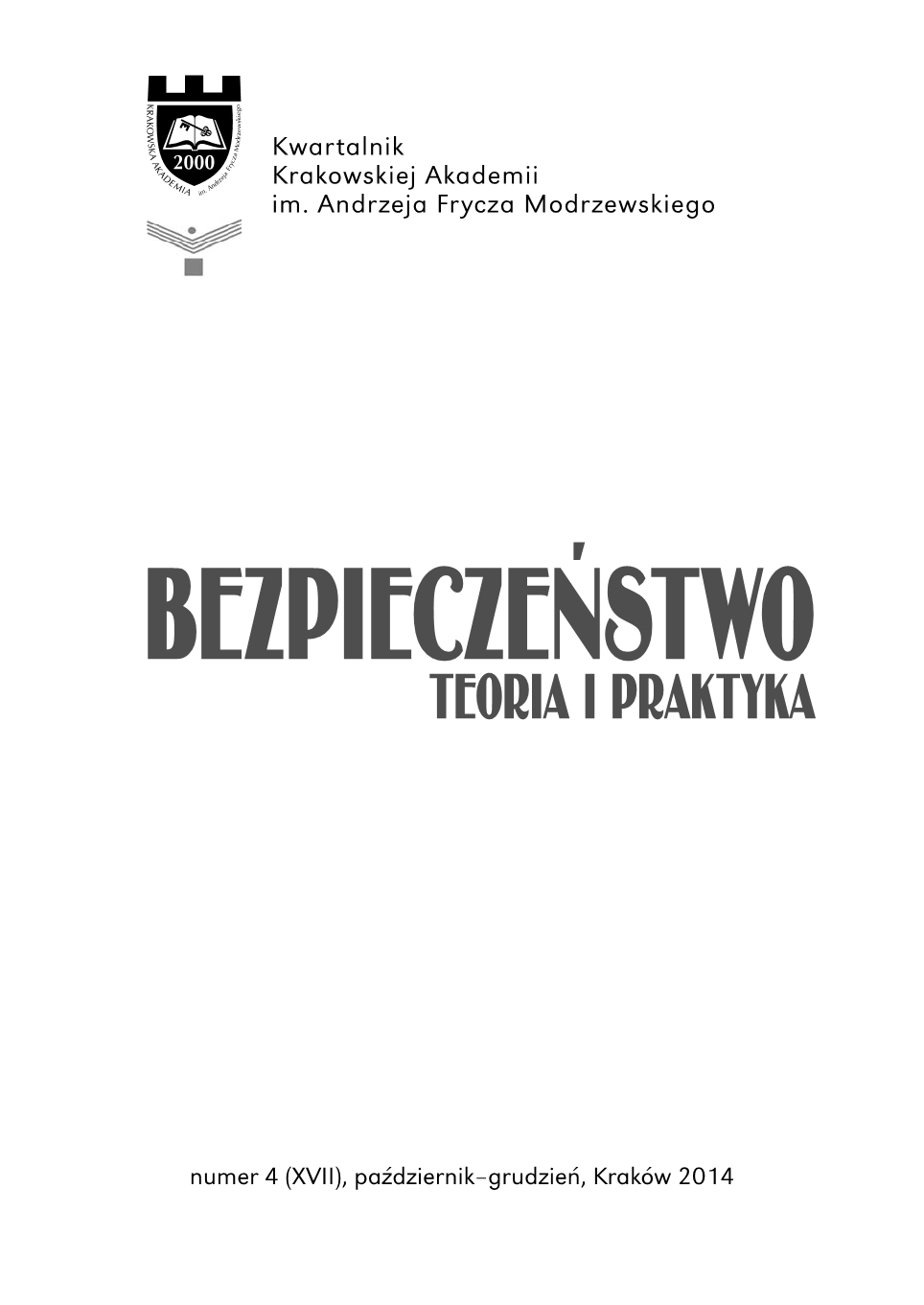Działalność ruchów anarchistycznych w Królestwie Polskim na przełomie XIX i XX stulecia
The activity of anarchist movements in the Kingdom of Poland at the turn of the 19th and 20th centuries
Author(s): Waldemar PotkańskiSubject(s): History, Military history, Political history, Recent History (1900 till today), Government/Political systems, Politics and society, History and theory of political science, 19th Century, Politics and Identity, Peace and Conflict Studies
Published by: Oficyna Wydawnicza AFM Uniwersytetu Andrzeja Frycza Modrzewskiego w Krakowie
Keywords: anarchism; terrorism; Kingdom of Poland; 1905 revolution; Okhrana;
Summary/Abstract: In the second half of the 19th century, alongside Marxism dominating the left, anarchist ideas also started to be disseminated in Europe. In the Russian Empire, industrial transformations activated anarchist and anti-system forces (such as those involved in Narodnaya Volya) invoking the universal freedom of people, who were entangled in a new slavery based on socio-economic factors in an era of aggressive capitalism. Around 1903, various anarchist organisations became more active in the borderland of the Kingdom of Poland and western Russia, mainly in Białystok Voivodeship. Large numbers of supporters of workers’ parties joined extremist organisations such as Chernoe Znamia or Beznachalie. The period of revolutionary upheaval started in 1905 was conducive to the development of anarchist organisations in the Kingdom of Poland, especially in large cities, such as Warsaw and Łódź. Members of the Workers’ Conspiracy, the International, and the Group of Revolutionary Avengers carried out armed assassinations of members of the tsarist authorities as well as the local bourgeoisie. Their activities were brutally suppressed by the police and Okhrana agents.
Journal: Bezpieczeństwo. Teoria i Praktyka
- Issue Year: XVII/2014
- Issue No: 4
- Page Range: 99-113
- Page Count: 15
- Language: Polish

